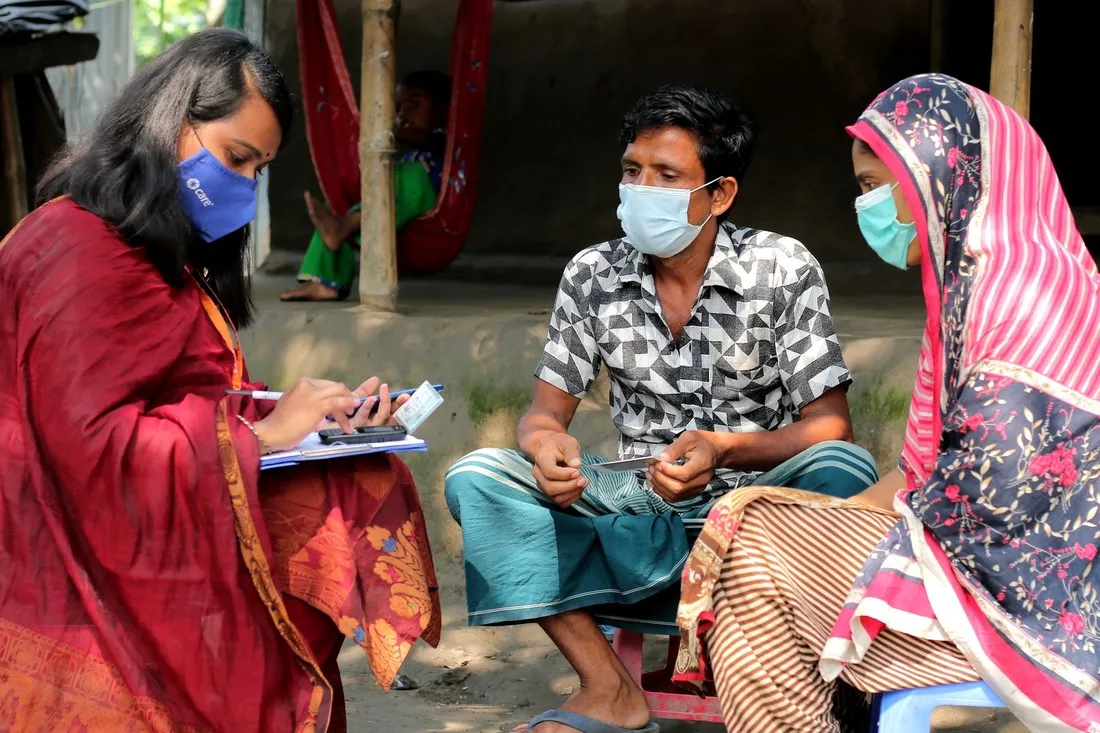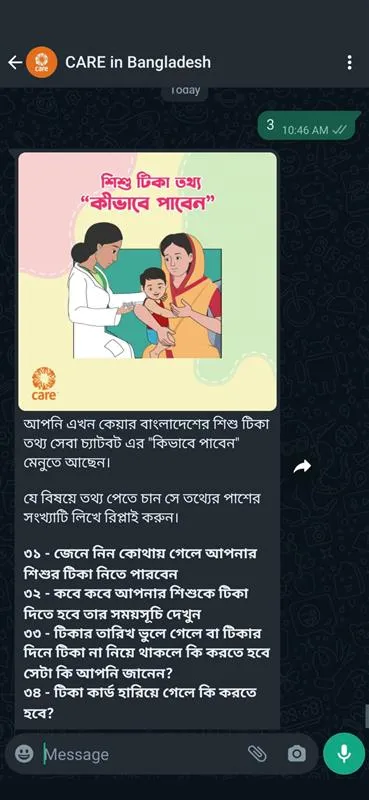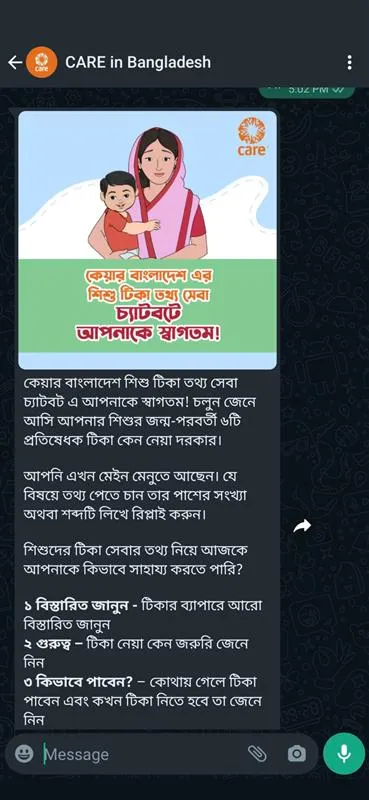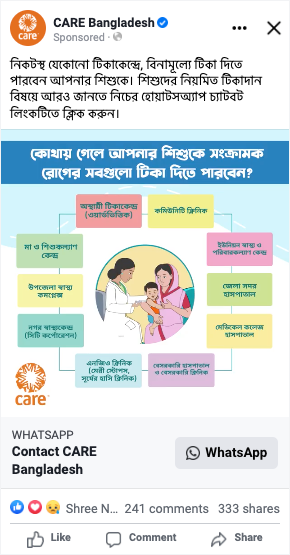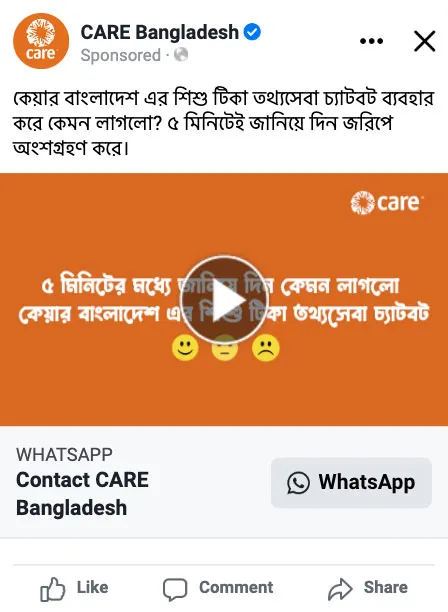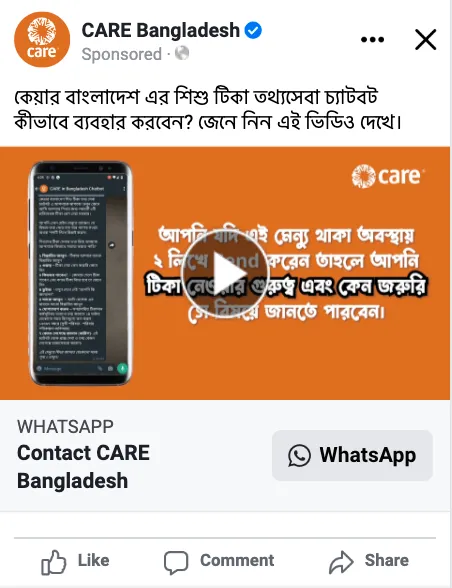Bangladesh’s Extended Program of Immunization (EPI) which, succeeding in increasing knowledge about immunization against infectious diseases before the pandemic, saw a decrease in performance and closure of its centers during the height of COVID-19. As EPI centers reopened in July 2022, CARE Bangladesh—with support from Meta—started building a chatbot on WhatsApp that would provide people in Bangladesh with immunization knowledge, answer FAQs, and increase the number of mothers in their target group using EPI services and securing immunizations for their children.
From December 2022 to January 2023, CARE Bangladesh launched and promoted their chatbot through a Facebook ad campaign, following months of content development, testing, and chatbot building through Turn.io’s user-friendly platform.
TL;DR?
- CARE, with support from Meta, built an automated chatbot through Turn.io that delivered important early childhood immunization information to people in Bangladesh. The chatbot’s visibility was boosted by a Facebook ad campaign that ran from December 2022 to January 2023.
- The chatbot and ad campaign reached 34.2 million people across Bangladesh and resulted in 123,918 unique conversations started. Approximately 17,300 people have opted in to receive future immunization-related messaging from the CARE country office chatbot
- An in-platform survey to gain user feedback found that 89.7% of people reported that they would recommend the chat service to others.

